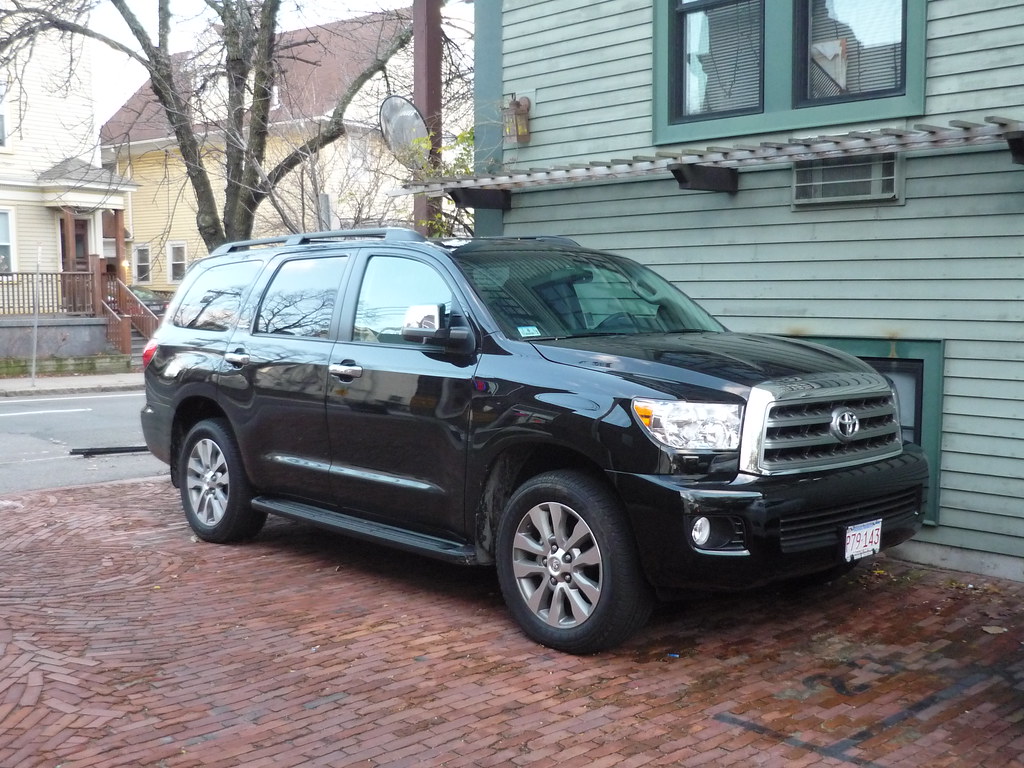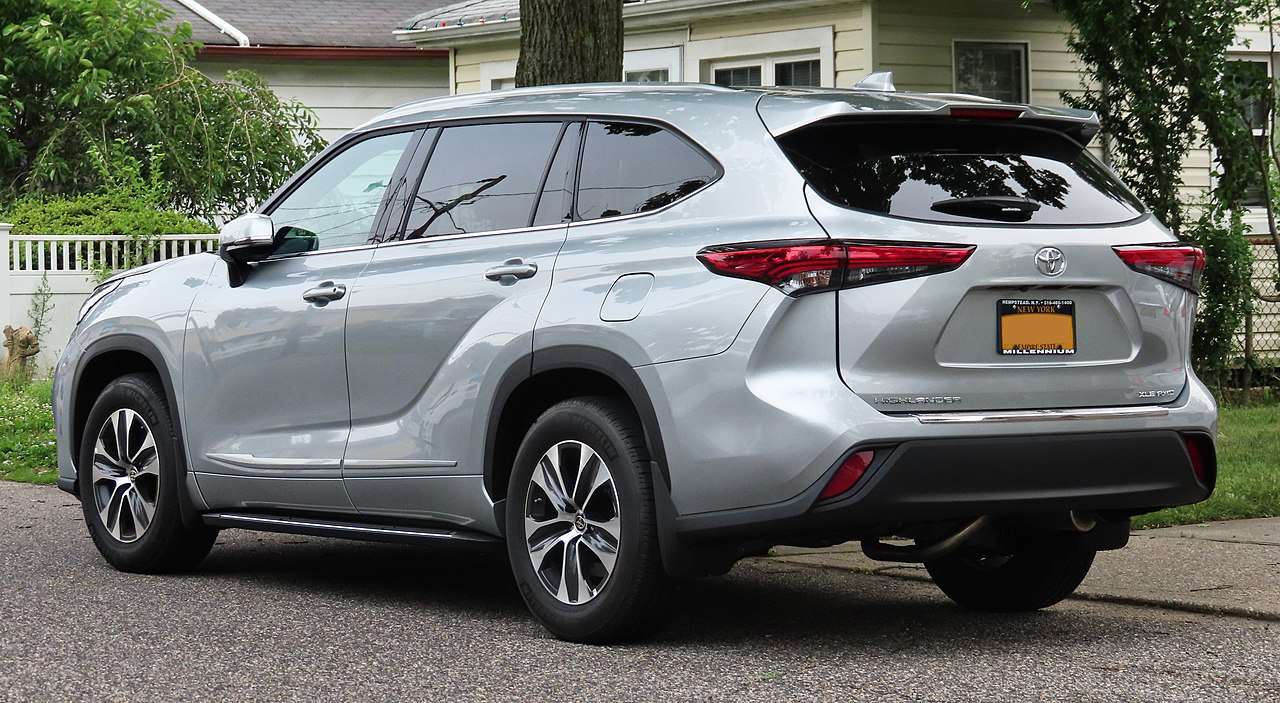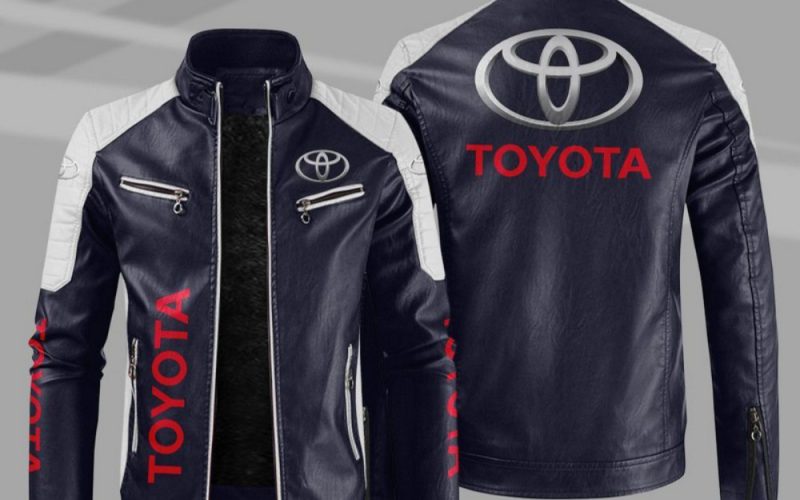Toyota offers a diverse lineup of SUVs, and the Sequoia and Highlander are two popular options for families and outdoor enthusiasts. Both models come from Toyota’s renowned lineup of SUVs, but they have distinct differences in terms of size, performance, features, and capabilities. In this comparative guide, we will delve into the key aspects of the Toyota Sequoia Vs Highlander to help you make an informed decision when choosing between these two SUVs.
Size and Space
The Toyota Sequoia is a full-size SUV, while the Toyota Highlander is a mid-size SUV. As such, the Sequoia is larger in terms of overall dimensions, with a more spacious interior. It can comfortably seat up to 8 passengers across three rows of seats, making it ideal for large families or groups. The Highlander, on the other hand, can accommodate up to 7 or 8 passengers depending on the configuration, with a slightly smaller interior space compared to the Sequoia.

Performance and Power
When it comes to performance, the Toyota Sequoia has the edge due to its larger size and more powerful engine options. The Sequoia comes equipped with a robust 5.7-liter V8 engine that delivers 381 horsepower and 401 lb-ft of torque. It also has a maximum towing capacity of up to 7,400 pounds, making it capable of handling heavy loads and towing trailers with ease. On the other hand, the Toyota Highlander offers a more fuel-efficient and smaller engine, with a standard 3.5-liter V6 engine that produces 295 horsepower and 263 lb-ft of torque. The Highlander has a maximum towing capacity of up to 5,000 pounds, which is still respectable but falls short of the Sequoia’s towing capabilities.
Features and Technology
Both the Toyota Sequoia and Highlander come packed with features and technology that enhance comfort, convenience, and safety. However, the Sequoia tends to offer a more upscale and luxurious experience due to its higher price point and larger size. The Sequoia boasts features such as a power liftgate, leather upholstery, tri-zone automatic climate control, and a premium audio system as standard or available options. The Highlander, on the other hand, also offers a generous array of features, but some of the more premium options may be limited to higher trim levels. Both SUVs come with Toyota’s Safety Sense suite of advanced safety features, including features like adaptive cruise control, lane departure alert, and pre-collision system with pedestrian detection, among others.
Capabilities and Off-Roading
The Toyota Sequoia is designed with ruggedness and off-road capability in mind. It features a robust body-on-frame construction, a four-wheel drive system with a low-range transfer case, and an adjustable air suspension that provides improved ground clearance. These features make the Sequoia a capable off-roader, suitable for tackling challenging terrains and trails. On the other hand, the Toyota Highlander is designed more for on-road driving with its unibody construction and available all-wheel drive system. While it can handle some light off-roading, it is not as capable as the Sequoia in challenging off-road conditions.
Price and Fuel Efficiency
The Toyota Sequoia is a more premium and larger SUV, and as such, it comes with a higher price tag compared to the Toyota Highlander. The Sequoia’s starting price is typically higher, and it also tends to have higher ongoing ownership costs, including fuel expenses, maintenance, and insurance. The Highlander, being a mid-size SUV, generally offers better fuel efficiency due to its smaller engine and lighter weight. It is important to consider the overall cost of ownership, including purchase price, fuel economy, and long-term maintenance costs, when comparing the Toyota Sequoia and Highlander.
Driving Experience and Comfort
Both the Toyota Sequoia and Highlander provide a comfortable and smooth driving experience, but there are some differences in terms of ride quality and handling. The Sequoia’s larger size and body-on-frame construction can result in a more truck-like feel, with a slightly stiffer ride and less precise handling compared to the Highlander. However, the Sequoia’s air suspension system can help improve ride comfort, especially on rough terrain. On the other hand, the Highlander’s unibody construction and smaller size make it more nimble and agile on the road, with a smoother and more car-like ride.
Cargo Space and Storage
The Toyota Sequoia offers ample cargo space, with up to 120.1 cubic feet of cargo capacity with the rear seats folded down. It also has a power liftgate and a split-folding third-row seat, making it easy to load and unload cargo. The Highlander, although smaller, still provides a respectable 84.3 cubic feet of cargo space with the rear seats folded down. It also has a power liftgate and a split-folding third-row seat for added versatility. Both SUVs also have various storage compartments throughout the cabin for storing smaller items, such as drinks, snacks, and personal belongings.
Reliability and Resale Value
Toyota vehicles are known for their reliability and high resale value, and both the Sequoia and Highlander are no exception. Both SUVs have a solid reputation for durability and dependability, with Toyota’s reputation for quality and longevity backing them up. However, it’s worth noting that the Sequoia’s larger size and more powerful engine may require more maintenance and potentially have higher repair costs compared to the Highlander. It’s important to factor in long-term reliability and resale value when considering the overall value of each vehicle.
Conclusion
The Toyota Sequoia and Highlander are both capable and reliable SUVs, but they have distinct differences in terms of size, performance, features, and capabilities. The Sequoia is a full-size SUV with a more powerful engine, larger interior space, and higher towing capacity, making it suitable for larger families or those with heavy towing needs. It also offers a more premium and upscale experience, but comes with a higher price tag and ongoing ownership costs.
On the other hand, the Highlander is a mid-size SUV with better fuel efficiency, a more car-like ride, and a slightly lower price point, making it suitable for smaller families or those looking for a more agile and efficient SUV. Ultimately, the choice between the Toyota Sequoia Vs Highlander will depend on your specific needs, preferences, and budget.












